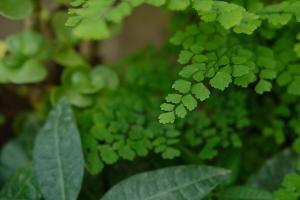How to Plant Fruit Trees in Colorado
Planting fruit trees in Colorado can be a rewarding experience, but it requires a bit of planning and preparation. The state's high altitude and variable climate can pose some challenges, but with the right selection of trees and planting techniques, you can enjoy fresh, home-grown fruit for years to come.
Choosing the Right Trees
When selecting fruit trees for your Colorado garden, it's important to choose varieties that are adapted to the region's unique growing conditions. Look for trees that are hardy and disease-resistant, as well as those that are tolerant of cold temperatures and can thrive in dry, arid climates.
Some of the best fruit trees for Colorado gardens include apple, cherry, peach, apricot, and plum trees. You can choose between dwarf, semi-dwarf, or standard trees depending on the size of your planting area and your personal preferences.
Preparing the Soil
Before planting your fruit trees, it's essential to prepare the soil. Colorado's high altitude and dry climate mean that soil tends to be alkaline and lacking in nutrients. To improve soil fertility, add organic matter like compost, manure, or leaf mold to the planting site.
Make sure the soil is well-drained and that there are no rocks or debris in the planting hole. You can also add a layer of mulch around the base of the tree to retain moisture and suppress weeds.
Planting Techniques
When it comes to planting fruit trees in Colorado, timing is key. It's best to plant in the early spring after the last frost or in the fall before the ground freezes. Make sure the planting hole is twice as wide as the root ball and deep enough to accommodate the entire root system.
Place the tree in the hole, ensuring that the graft union is above ground level. Backfill the hole with the soil and tamp it down gently around the base of the tree. Finally, water the tree thoroughly to help it settle into its new home.
Maintaining Your Trees
After planting your fruit trees, it's important to take good care of them to ensure they grow strong and healthy. Water your trees regularly, especially during hot, dry periods, and make sure the soil stays consistently moist but not waterlogged. Fertilize your trees with an organic fruit-tree fertilizer once per season, following the manufacturer's instructions.
To encourage strong growth and fruit production, it's also important to prune your trees regularly. Remove any damaged, diseased, or crossing branches, as well as any suckers or water sprouts that may appear.
Conclusion
Planting fruit trees in Colorado can be challenging, but by selecting the right varieties, preparing the soil, and using proper planting techniques, you can enjoy a bountiful harvest of fresh, delicious fruit. With a bit of care and attention, your fruit trees will thrive and provide you with a lifetime of home-grown goodness.

 how many times do yo...
how many times do yo... how many planted tre...
how many planted tre... how many pine trees ...
how many pine trees ... how many pecan trees...
how many pecan trees... how many plants comp...
how many plants comp... how many plants can ...
how many plants can ... how many plants and ...
how many plants and ... how many pepper plan...
how many pepper plan...































